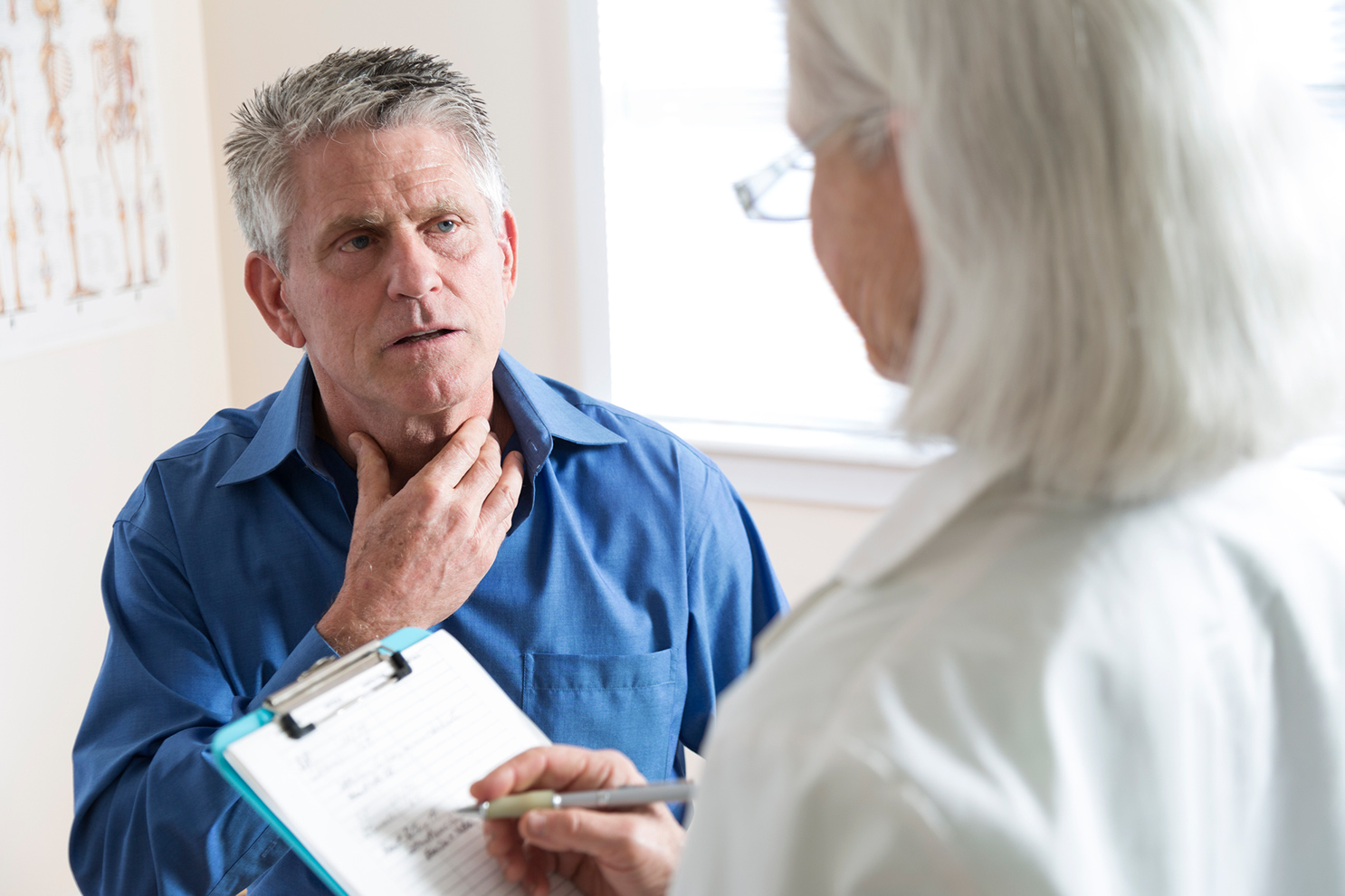When It’s Time To Talk To Your Doctor About Lung Cancer
By Rachel Ernst |
When seeing signs of lung cancer in everyday life, it is natural to reach out to a doctor. However, exposure to carcinogens or toxins, daily smoking habits, or family history of lung cancer are all valid reasons to talk to your doctor about lung cancer.

When To Tell Your Doctor About Cancer
A lung cancer diagnosis can shock some patients, as 20,000-40,000 patients diagnosed with the disease have never smoked. Being aware of other risk factors of lung cancer can help you determine if you are at an increased risk of developing it. Talk to your doctor about your concerns about lung cancer.
If you know you were exposed to a carcinogen and are statistically more likely to develop diseases like lung cancer, be honest with your doctor. It can be difficult to bring it up, but open discussions about occupational or natural exposure to toxins can help both of you make informed health decisions moving forward. Key factors can put you at greater risk of developing lung cancer.
It’s time to talk to your doctor about lung cancer if:
1) If You Were Exposed to Carcinogens on the job
Commercial properties used asbestos in construction components due to its fire-resistant nature. Asbestos is a naturally occurring mineral that increases the risk of cancer if inhaled or ingested. Buildings built before the 1980s, including schools, homes, and industrial locations, heavily used the substance.
Exposure to carcinogens happens at workplaces all over the country. Occupational exposure to toxins significantly increases the risk of lung cancer. Cancer-causing agents in the workplace include:
- Uranium
- Diesel exhaust
- Inhaled chemicals
- Asbestos
Talk to your doctor about lung cancer and the possibility of occupational exposure to carcinogens, especially if your occupation is high-risk. Some high-risk industries include chemical, construction, industrial, manufacturing, shipyard, and pipefitting.
2) If You Were Exposed to Natural Toxins
Exposure to natural toxins like asbestos, radon, and other hazardous chemicals and pollutants can happen without us knowing. Radon is a natural, radioactive gas that can result in lung damage when inhaled. When uranium in soil and rocks breaks down, the gas (radon) released to the surface can occur near homes and other buildings. Most states in the United States contain radon.
3) If you are a Current or Former Smoker
Smoking cigarettes causes lung cancer. The risk of lung cancer increases in people who smoke, quit smoking in the past 15 years, and are over the age of 55. Most smokers develop small cell lung cancer (SCLC) but can instead develop non-small cell lung cancer (NSCLC). Exposure to second-hand smoke can increase the chance of lung cancer, even among non-smokers.
4) Have a Family History of Lung Cancer
Parents can genetically pass cancer genes on to their children. If you have an immediate family member with cancer, your risk of developing lung cancer is slightly heightened.
Types of Lung Cancer
The onset of tumor growth in the lung indicated the development of lung cancer. There are two types of lung cancer – non-small cell lung cancer (NSCLC) and small cell lung cancer (SCLC). Both forms of lung cancer are broken down into subtypes.
Small Cell Lung Cancer Type
SCLC is a form of lung cancer most often found in smokers and former smokers. As the fastest-growing type of lung cancer, tumors form in the bronchi and may quickly spread to other areas of the body.
The development of SCLC can indicate limited growth, in which tumors only remain in the lung or lymph node on one side of the chest. Alternatively, the development of SCLC can indicate extensive growth, in which tumors have metastasized from one lung to another or other organs.
Limited treatment options have helped improve late-stage SCLC. Clinical trials and immunotherapy developments have helped extend the lives of many SCLC patients. The first signs of symptoms in patients with undiagnosed SCLC can include blood in mucus when coughing, chronic cough, tightness or discomfort in the chest, swollen veins, or shortness of breath.
Non-Small Cell Lung Cancer Type
Non-small cell lung cancer can occur in patients previously exposed to carcinogens, although smoking is a major risk factor. NSCLC forms in the tissues of the lung. The most common subtypes of NSCLC include squamous cell carcinoma, large cell carcinoma, and adenocarcinoma.
Showing Compassion To Lung Cancer Patients
A cancer diagnosis is difficult for everyone, especially the patient. A large portion of lung cancer patients blame themselves
Showing kindness and compassion to lung cancer patients can help diffuse some of the negative emotions. Rather than asking a lung cancer patient if they smoked, treat them with kindness, show empathy, and listen to them. Earn their trust by responding to their needs with reassurance.